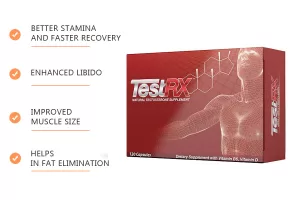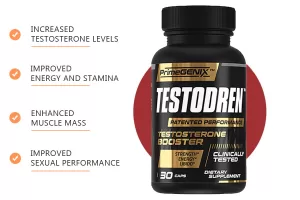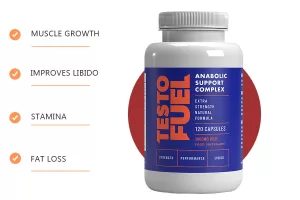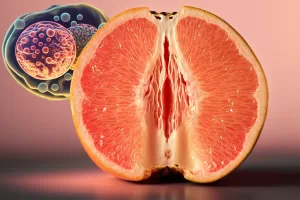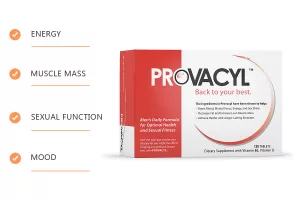How to treat high testosterone in a woman? To sort out the intricacies of high testosterone in women, a comprehensive understanding is demanded. This article considers effective strategies for treating and managing increased testosterone levels, contributing to both physical and emotional well-being.
What is Testosterone
Testosterone represents a crucial hormone found in both genders. Still, testosterone is more prevalent in men. This hormone stimulates muscle and bone growth, regulates mood, and influences different body functions. Also, testosterone plays an important role in reproductive health and secondary sexual characteristics such as facial hair and deeper voices.
What Causes High Testosterone in Women?
High testosterone in women can be caused by certain conditions such as polycystic ovary syndrome (PCOS), congenital adrenal hyperplasia (CAH), hormone-secreting tumors, and other factors. These conditions and disorders disturb the hormonal balance, resulting in symptoms like facial hair growth and irregular periods.
Polycystic Ovary Syndrome (PCOS)
Polycystic ovary syndrome (PCOS) usually causes high testosterone in women. Imbalanced hormone production results in enlarged ovaries with small cysts. This leads to symptoms such as irregular periods, acne, and excess hair growth.
Congenital Adrenal Hyperplasia (CAH)
Congenital adrenal hyperplasia (CAH) can likewise increase testosterone in women. Genetic enzyme deficiencies disturb adrenal hormone synthesis, triggering excess androgen production. This results in masculine traits, irregular menstrual cycles, and fertility problems.
Hormone-secreting tumors
Hormone-secreting tumors can trigger elevated testosterone in women. Tumors in the adrenal glands, ovaries, or pituitary gland can produce excess androgens, resulting in symptoms such as virilization, irregular periods, and other hormonal imbalances.
Other factors
Other factors promoting high testosterone in women involve chronic stress and poor diet. Stress can disturb hormone balance, while diets rich in refined sugars and low in essential nutrients may influence insulin levels and worsen conditions such as polycystic ovary syndrome (PCOS).
Symptoms of High Testosterone in Women
High testosterone in women may be manifested in certain symptoms. For instance, it may cause increased hair growth (hirsutism), acne and oily skin, menstrual irregularities, weight gain, mood changes, and low libido or increased sexual desire. Other symptoms involve male-pattern baldness and deepening of the voice.
Increased hair growth (hirsutism)
High testosterone in women may result in hirsutism, triggering increased facial and body hair growth. This condition demands medical examination and treatment for symptom management.
Acne and oily skin
Elevated testosterone levels in women can likewise cause acne and excessive skin oiliness. Such symptoms may point out hormonal imbalance and require medical attention for diagnosis and effective management.
Menstrual irregularities
Moreover, high testosterone levels in women may disturb menstrual cycles, resulting in irregular periods or even the absence of menstruation. Monitoring and medical aid are of decisive importance in eliminating these symptoms and underlying hormonal imbalances effectively.
Weight gain
Increased testosterone in women may promote unexplained weight gain. This symptom, usually accompanied by other signs of hormonal imbalance, should be evaluated by a healthcare professional to define the major reasons and corresponding management strategies.
Mood changes
Elevated testosterone levels may cause mood swings and changes, including irritability and mood disturbances. Paying attention to these symptoms and asking for medical assistance is of utmost importance to eliminate hormonal fluctuations and manage emotional well-being effectively.
Low libido or increased sexual desire
Finally, high testosterone levels in women may trigger changes in sexual desire – manifesting as either decreased libido or increased interest. These alterations may cause anxiety, highlighting the need for medical examination and guidance to restore hormonal balance and overall well-being.
Diagnosis
Diagnosing high testosterone in women includes blood tests, ultrasounds, and hormone assessments. A careful evaluation is of paramount importance to comprehend underlying causes and potential health impacts, paying special attention to a comprehensive range of hormone tests.
How to Treat High Testosterone in a Woman
Treating high testosterone in women includes identifying the underlying cause first. After that special treatment methods may be prescribed by a healthcare provider. Some of them involve medications, lifestyle changes, surgical options, and alternative treatments. These treatment strategies may assist women in restoring hormonal balance and facilitating symptoms.
Medications
One of the effective treatment methods for high testosterone in a woman is taking medications. As a rule, these medications involve anti-androgens, birth control pills, and insulin-sensitizing medications. A healthcare professional’s guidance is important for proper evaluation and prescription.
Anti-androgens
Anti-androgens such as spironolactone are utilized to treat high testosterone in women. They block androgen receptors, decreasing symptoms such as acne and hirsutism. Medical control is crucial because of potential side effects and interactions. Moreover, individualized treatment plans ensure effectiveness and security.
Birth control pills
Being a type of birth control pill, combined oral contraceptives may assist women in treating high testosterone. These medications regulate hormone levels, facilitating symptoms such as irregular periods and excessive hair growth. As always, medical consultation guarantees proper usage and monitoring.
Insulin-sensitizing medications
Insulin-sensitizing medications such as metformin can help women cope with high testosterone in conditions like polycystic ovary syndrome (PCOS). By increasing insulin resistance, these medications assist in regulating hormone levels and managing accompanying symptoms. Medical guidance ensures individualized treatment approaches and monitoring.
Lifestyle Changes
Solving issues of high testosterone in women through lifestyle alterations includes incorporating a balanced diet, regular exercise, and stress management. These practices contribute to hormonal equilibrium and can facilitate symptoms.
Diet
Managing high testosterone in women with the assistance of dietary alterations includes lowering sugar intake and increasing fiber intake. A balanced diet rich in whole foods maintains hormone balance and alleviates symptoms. Professional guidance assists in adapting dietary adjustments for optimal results.
Exercise
Treating high testosterone in women through exercise suggests regular physical activity, which assists in regulating hormones and improving insulin sensitivity. Engaging in aerobic and strength training exercises helps women manage symptoms effectively. In addition, consultation with a healthcare professional guarantees secure and suitable exercise routines.
Stress management
Finally, effectively managing high testosterone in women includes stress reduction techniques such as meditation, deep breathing, mindfulness, and yoga. Decreasing stress levels helps women restore hormonal balance and facilitate associated symptoms.
Surgical Options
Surgical options for high testosterone in women may be considered when other treatment methods do not help. As a rule, the most common surgical options involve oophorectomy and adrenalectomy. Careful medical evaluation and consultation are required before considering surgical interventions.
Oophorectomy
Oophorectomy represents the surgical removal of the ovary. It is considered one of the last resort options for treating high testosterone in women. Oophorectomy is designed for severe cases or when other treatments are ineffective. It removes a considerable source of androgen production. A thorough medical assessment is important before considering this procedure.
Adrenalectomy
Adrenalectomy is the surgical removal of adrenal glands. It is considered another extreme measure for treating high testosterone in women triggered by adrenal problems. Adrenalectomy is reserved for special cases and it restricts excessive androgen production.
Alternative Treatments
Aside from the above-discussed ways of treating high testosterone in a woman, one may highlight a few alternative treatments. They include taking herbal supplements and acupuncture. It is worth mentioning that no matter what treatment you select, it is of utmost importance to consult a doctor first.
Herbal supplements
Women may consider taking herbal supplements if they have high testosterone levels. White peony, licorice, nettles, spearmint tea, reishi mushroom, and others are confirmed with research and have testosterone-lowering effects. They are usually employed in both polycystic ovary syndrome (PCOS) and other cases of elevated testosterone in women.
Acupuncture
According to studies, electro-acupuncture treatments result in more regular menstrual cycles, decreased testosterone levels, and reduced waist circumference. That’s why it may be regarded as another treatment method for women with high testosterone.
Summary
To sum up, high testosterone in females may be caused by a set of factors and manifest itself in various symptoms. Treating this disorder with the aid of the above-mentioned methods may be effective for reducing symptoms and improving a person’s quality of life.
FAQ
Why would a woman’s testosterone be high?
As a rule, a woman’s testosterone may be high due to polycystic ovary syndrome (PCOS), congenital adrenal hyperplasia (CAH), and hormone-secreting tumors.
How can a woman lower her testosterone?
A woman can lower her testosterone through medications, lifestyle changes, and surgical interventions.
What does high testosterone feel like?
Women may experience signs of high testosterone such as increased hair growth, acne, menstrual irregularities, mood swings, weight gain, and others.



